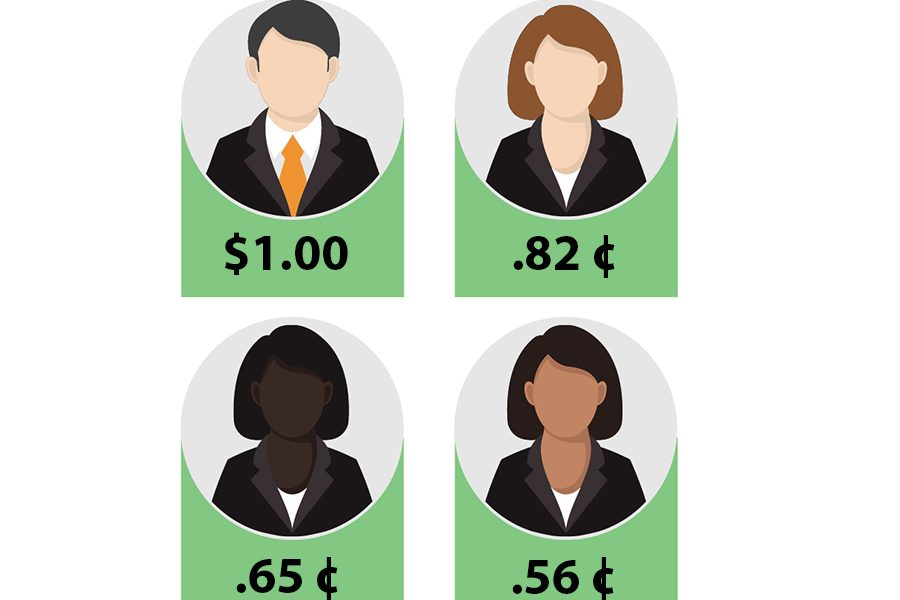Economic disparity hurts minority women most
September 21, 2016
In our country, and the world, we have a large disparity in wages earned by women comparative to those of men. In America, if asked how much money a woman makes for every dollar a man makes, many people would say about 82 cents.
Maybe that would be the case if we didn’t have other factors like socioeconomic status and we ignored the compounding effects of intersectionality.
In actuality, women of color make significantly less than their white counterparts. Black women make 65 cents for every dollar a white man makes, and Hispanic women only make 58 cents. In a truly progressive country, the figures among women and men despite race wouldn’t deviate much, yet this is not the case. In a fair environment, the wages would be virtually the same.
Many people could claim an educational gap, yet minority women have been enrolling in college and receiving degrees at much higher rates than ever before. According to The National Center for Educational Statistics, “The numbers of master’s degrees earned by Black and Hispanic students more than doubled between the 1999-2000 school year and 2009-2010 (increasing by 109 percent and 125 percent, respectively).” Yet the wage gap is still a prevalent.
Many women have been constrained from improvement. They have many aspirations and dreams, but still need to take care of daily business. There are many single mothers, with the responsibilities of rent and utilities, a car note, groceries, and all of the dedication it takes to raise a child … while still going to school.
Sometimes the wages corporations offer isn’t enough to sustain a healthy lifestyle for that woman and her family. Many men, especially white, have confidence going into an interview because they immediately have so much in common with the frequently white male hiring manager. The confidence men have to ask for a raise is the same confidence they have going into an interview in the first place.
But minority women haven’t given up. The growth has been incredible. In fact, there have been many reports that black women are the most educated in America by their racial group, earning 66% of bachelor’s degrees, 71% of master’s degrees, and 65% of all doctorate degrees awarded to black students. Yet despite these figures, finding a well-paying job that doesn’t exercise a woman of all of her resources despite its low pay hasn’t been easy. Many minority women have taken a new route: Entrepreneurship.
According to Fortune.com, the website for Fortune 500 news, black women are the number one growing group of entrepreneurs in America. The number of businesses owned by African American women grew 322% since 1997, making black females the fastest growing group of entrepreneurs in the U.S.
Many minority women have found great success and community building through support of other entrepreneurial women. Elizabeth Creech, a student at Madison College, had a lot to say. “I’m proud of black women striving for independence for themselves and communities.” She continued, “We have to stick together. The most important lesson learned among black women entrepreneurs is the importance of collaboration. It’s a waste of knowledge if we don’t share it.”
These are sentiments shared among many minority women, and with the current rate of growth, we may be looking at a more fair and educated country.











